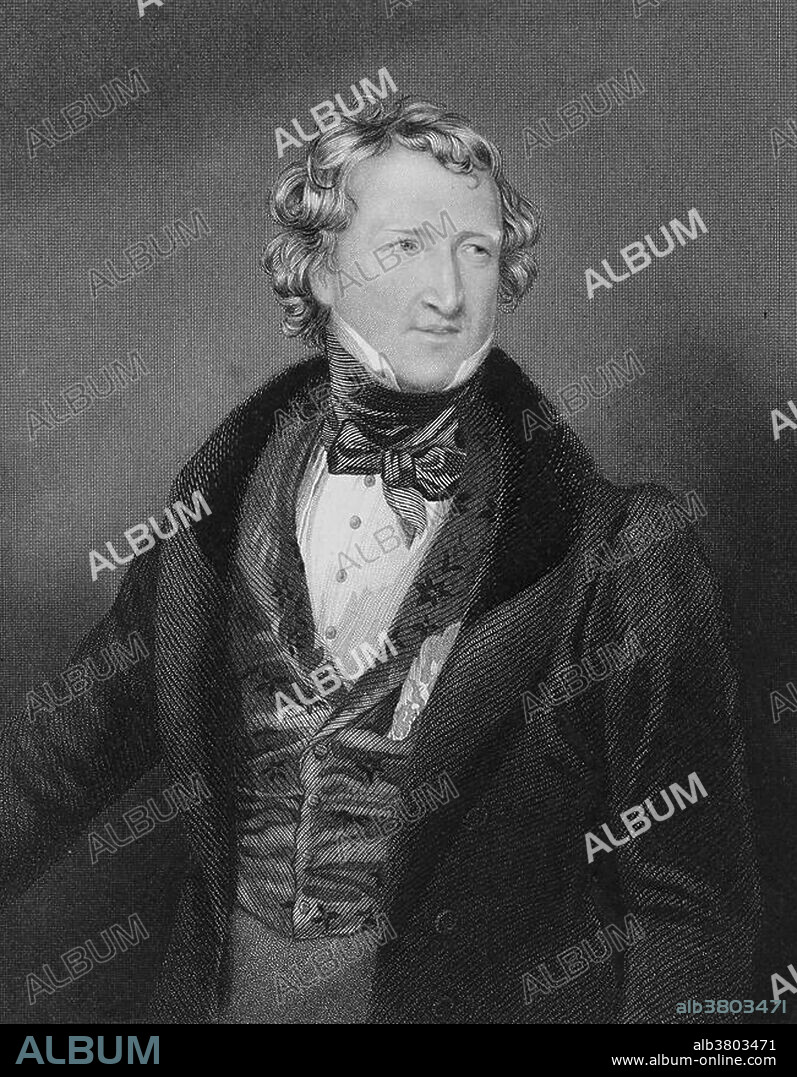alb3803471
Thomas Wakley, English Coroner and Political Reformer

|
Add to another lightbox |
|
Add to another lightbox |



Title:
Thomas Wakley, English Coroner and Political Reformer
Caption:
Thomas Wakley (1795-1862), was an English surgeon, coroner, political reformer and founding editor of the medical journal, The Lancet. As a member of Parliament, Wakely was particularly concerned with reform of forensic medicine, public health, and other medical issues, and campaigned to reinvent the office of the coroner as an open, democratic, and medically competent institution. Wakley argued that coroners should be qualified medical men and elected advocates of the people - not lawyers and appointees and that an inquest could only produce justice if conducted publicly and scientifically, without favoritism or prejudice. He worked to expose cover-ups and wrongdoing, such as the 1839 case of Thomas Austin, a 79-year-old man who was incarcerated in a workhouse for indigents, and who died there after falling into a copper vat of boiling water. Austin's body was hastily buried by the workhouse authorities, but Wakely ordered it to be exhumed and held an inquest. The jury found ruled that Austin's death was accidental, but that the workhouse authorities' negligence, in not placing railings around the vat, had been a contributory factor.
Credit:
Album / NLM/Science Source
Releases:
Model: No - Property: No
Rights questions?
Rights questions?
Image size:
2746 x 3527 px | 27.7 MB
Print size:
23.2 x 29.9 cm | 9.2 x 11.8 in (300 dpi)
Keywords:
1795 • 1862 • 19TH CENTURY • ART • ARTWORK • BW • CELEBRITIES • CELEBRITY • COMPETENT • CORONER • COURT OF LAW • CRIME • DRAWING • ENGLISH • EUROPEA • EUROPEAN • EUROPEANS • EXPOSÉ • FAMOUS PEOPLE • FAMOUS • FIELD • FIGURE • FORENSICS • HISTORIC • HISTORICAL DOCTOR • HISTORICAL PHYSICIAN • HISTORICAL • HISTORY • ILLUSTRATION • ILLUSTRATIONS • IMPORTANT • LANCET, THE • LEGAL SYSTEM • MALE • MAN • MEDICAL JOURNAL • MEDICAL • MEDICINAL • MEDICINE • MEMBER • MEN • NOTABLE • PARLIAMENT • PEOPLE • PERSON • PERSONALITIES • PERSONALITY • POLITICS • PORTRAIT • POTRAIT • QUALIFY • REFORMER • RESEARCH • SCIENCE • STUDY • SURGEON • T. WAKLEY • THOMAS WAKLEY • WAKLEY • WELL-KNOWN
 Pinterest
Pinterest Twitter
Twitter Facebook
Facebook Copy link
Copy link Email
Email

